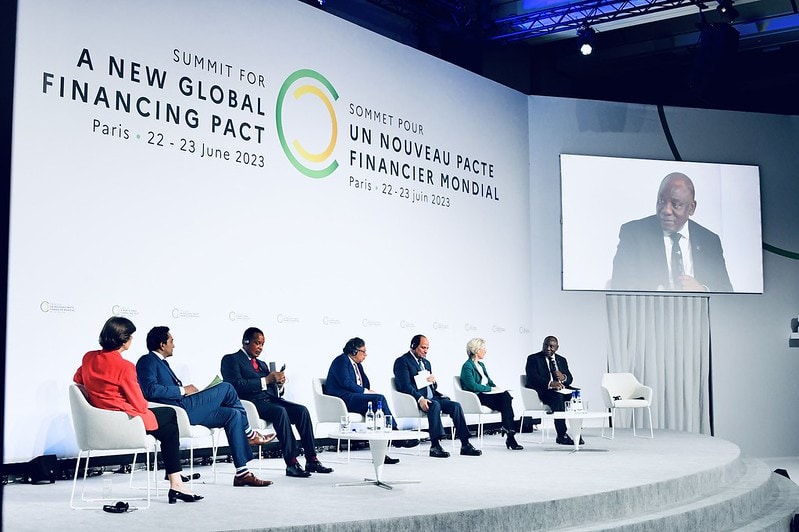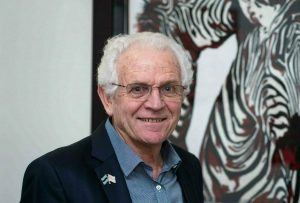Pres. On Thursday, Cyril Ramaphosa gathered together with dozens of world leaders in Paris, France, for a summit aimed at reforming the international lending system to help countries – which are burdened with debt – overcome climate change and other challenges.
The French president, Emmanuel Macron, says the summit on a new international financing pact must find financial solutions so that poverty and global warming can be tackled and the environment can be protected. He is co-hosting the summit with the prime minister of Barbados, Mia Mottley.
Ramaphosa said during his speech that the summit is a valuable platform for engagement that should complement the discussions in the relevant multilateral forums, especially the UN Framework Convention on Climate Change – but should not dominate.
According to the president, in November 2021 South Africa announced a historic Equal Energy Transition Partnership with the governments of France, Germany, the United Kingdom and the United States, as well as the European Union.
“This partnership was established to support South Africa’s just transition to a low-carbon economy and a climate-resilient society. The partners have agreed to an initial commitment of $8.5 billion for this purpose.”

South Africa has since drawn up an Investment Plan for Just Energy Transition, which determined the extent of the financial need at around $98 billion.
“This investment plan would support investments in electricity infrastructure, support for communities and workers in coal mining areas, new energy vehicles, green hydrogen and skills development. We learned several lessons during this process.”
The president believes it is firstly important that equal energy transition partnerships should be country-driven and owned.
“South Africa is undertaking this transition with a unique set of challenges that include high levels of poverty and an energy shortage. We have high levels of unemployment among unskilled workers, making possible job losses in the coal value chain even more challenging. We have a limited fiscal environment that limits the ability of the government to provide social security in the event of job losses.”
The president secondly believes that more emphasis should be placed on the fair component of the transition, both in the structuring of the investment plan and in the corresponding financial package.
“Countries undertaking an equal energy transition must be clear about how they define ‘fair’, especially with regard to the social impact.
“Thirdly, given South Africa’s current energy crises, we realized that flexibility is crucial. Countries must be able to determine a transition path that takes into account development goals such as energy security.
“This brings me to my fourth point: equal energy transition partnerships must be transformed into tangible financial support. The extent of financial support must take into account the development level of the countries and the extent of the required transition.”
The president referred as an example to the current commitment of $8.5 billion from partners, which is less than a tenth of what will be needed over the next five years for a meaningful and fair transition.
“Grants must form a significant part of the financial support, and any debt-related conditions must be more attractive than what the country could obtain in the capital markets. It is important that the financing reflects the commitment of developed economies to finance relief and adaptation measures in developing economies. The financing must be predictable and certain.”
Ramaphosa adds that the transition process must also support green industrialization through the transfer of technology and skills.
“Finally, a just energy transition requires long-term partners that will support developing economies in their pursuit of sustainable and green economic growth and development.”








